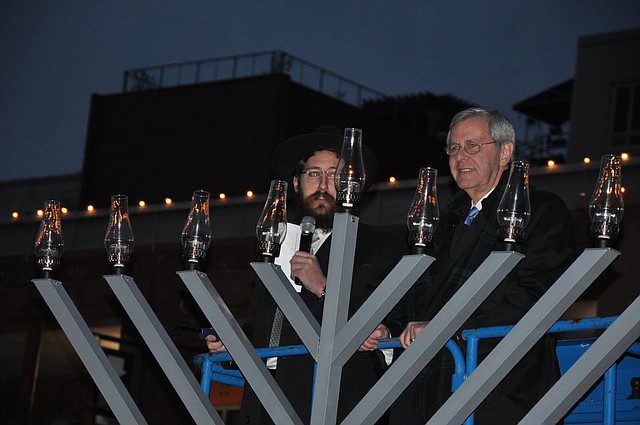Rabbi Shaul Perlstein cancels Hamilton County prayer
Friday, January 1, 1904
When Hamilton County commissioners sent letters in July inviting faith leaders to give invocations before meetings, Rabbi Shaul Perlstein responded and was scheduled for Thursday.
But he later notified the commission's staff that he would postpone his participation until after the current lawsuit against commissioners is finished.
"When I originally signed up to do it, I was unaware of all the details of the legal case," Perlstein said Thursday afternoon. "I just didn't want to be caught up in the legal dealings of it."
The lawsuit, filed in June, seeks to force the commission to halt its prayers, which the suit says violate the establishment clause of the First Amendment.
County Legislative Administrator Chris Hixson said her office merely moved all the other scheduled faith leaders up a week.
But a list originally released by the county in July did not contain Mitchell Reaves of Northside Community Baptist Church in any slot from that month through the end of November.
Reaves prayed Thursday - again invoking Jesus' name - just a day after U.S. District Judge Harry S. "Sandy" Mattice said the court likely would consider the mounting prayer record at the commission when determining whether its new "neutral" prayer policy is being applied constitutionally.
"Lord God, you are good and you do good and you've created all things and all things exist for your pleasure," Reaves said, asking guidance for commissioners. "We ask it in Jesus' name, amen."
Mattice's order denied plaintiffs Tommy Coleman and Brandon Jones' request temporarily to halt commission prayers, but it also challenges the county's position that a constitutional prayer policy is enough to ensure that prayers comply with the First Amendment.
In choosing its current policy, the commission "has assumed - on its own behalf and on behalf of the citizens and taxpayers of Hamilton County - the responsibility of ensuring that its policy is implemented in a manner that respects both the rights of its citizens and the commands of the First Amendment," Mattice wrote. "Whether it will actually effect its policy in such a fashion has yet to be seen."
Since commissioners passed a more inclusive policy on July 3, inviting all faith leaders to give invocations on a first-come, first-served basis, the seven who've spoken specifically invoked the name of Jesus. All speakers have been Christian -- four from Baptist churches, one from a Church of God, one from a Lutheran church and one from Hickory Valley Christian.
Of the 21 speakers scheduled between now and Feb. 6, at least 17 are from self-identified Christian churches or denominations. Leaders from the Universal Life Church and Unitarian Universalist Church also are scheduled.
Perlstein, who has lived in town for only a few years, said he's led invocations in other areas.
"I've done this in cities out of New York, Chicago," he said. "I guess there was never really such an issue of it not being nondenominational and all that."
